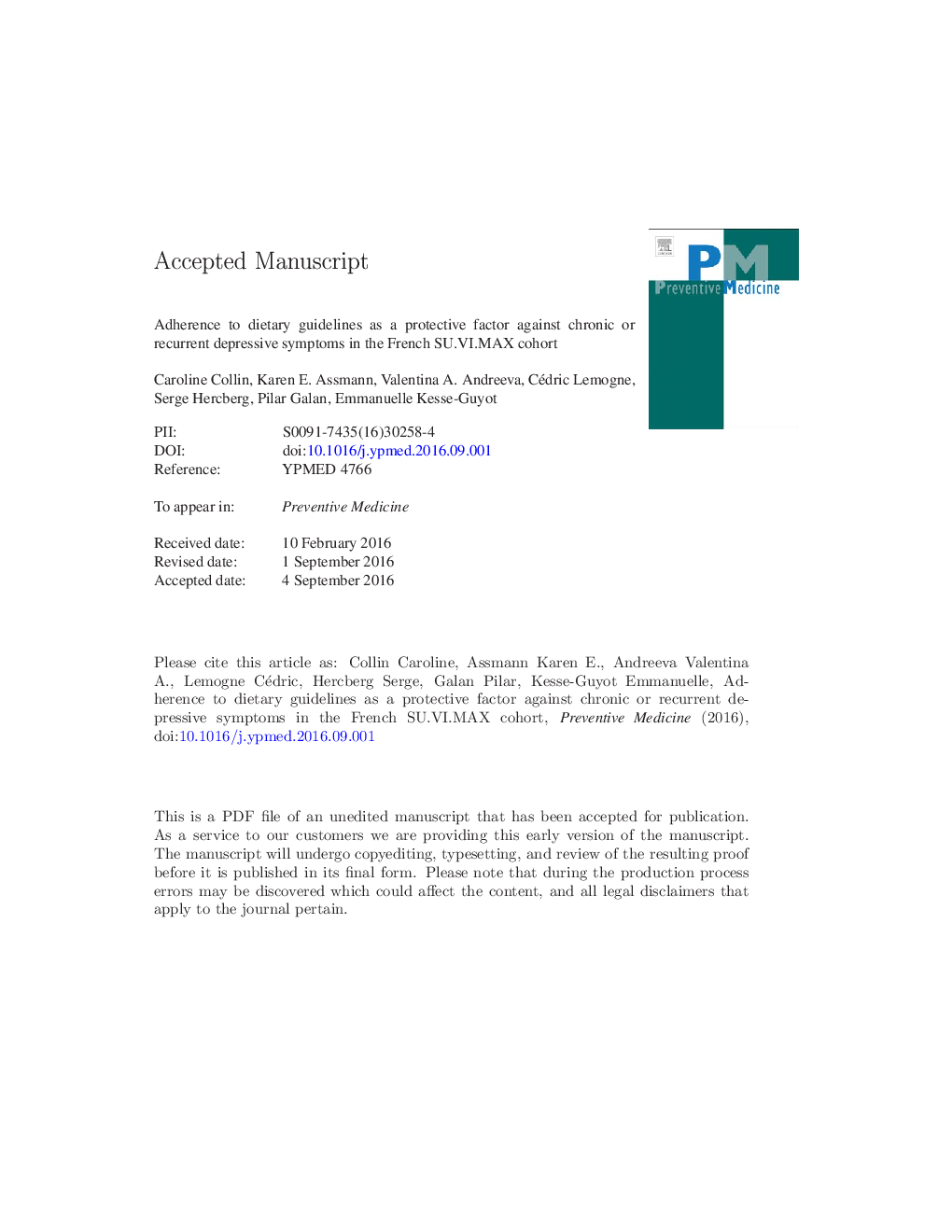| Article ID | Journal | Published Year | Pages | File Type |
|---|---|---|---|---|
| 6045997 | Preventive Medicine | 2016 | 31 Pages |
Abstract
Several studies have suggested that a healthier overall diet was associated with a lower risk of depression, which is one of the main causes of disability worldwide. Our objective was to investigate the prospective association of adherence to dietary guidelines at midlife, measured by the French Programme National Nutrition Santé-Guideline Score (PNNS-GS), with chronic or recurrent depressive symptoms. The association between the PNNS-GS and chronic or recurrent depressive symptoms was evaluated among participants of the French Supplémentation en Vitamines et Minéraux AntioXydants (SU.VI.MAX) cohort with available data on the PNNS-GS at baseline (1994-1996) and on the Center for Epidemiologic Studies-Depression Scale (CES-D) in 1996-1997 and follow-up (2007-2009) (n = 3328). Chronic or recurrent depressive symptoms were defined by a CES-D score â¥Â 16 at baseline and follow-up. Odds ratios (OR) and 95%-confidence intervals (95%-CI) were estimated across quartiles (Q) of the PNNS-GS, using logistic regression models. In our study, 10.1% of the participants (n = 335) had chronic or recurrent depressive symptoms. After adjustment for potential confounders, the PNNS-GS was inversely associated with chronic or recurrent depressive symptoms: ORQ4 vs. Q1: 0.42 (95%-CI: 0.29, 0.60). Modelling the PNNS-GS as a continuous variable yielded similar results: OR for a 1-point increment in the PNNS-GS: 0.86 (95%-CI: 0.80, 0.92). In conclusion, higher adherence to French dietary guidelines at midlife was associated with a lower rate of chronic or recurrent depressive symptoms, which suggests that these recommendations may be highly relevant, not only to avoid chronic diseases, but also for the overall well-being.
Related Topics
Health Sciences
Medicine and Dentistry
Complementary and Alternative Medicine
Authors
Caroline Collin, Karen E. Assmann, Valentina A. Andreeva, Cédric Lemogne, Serge Hercberg, Pilar Galan, Emmanuelle Kesse-Guyot,
